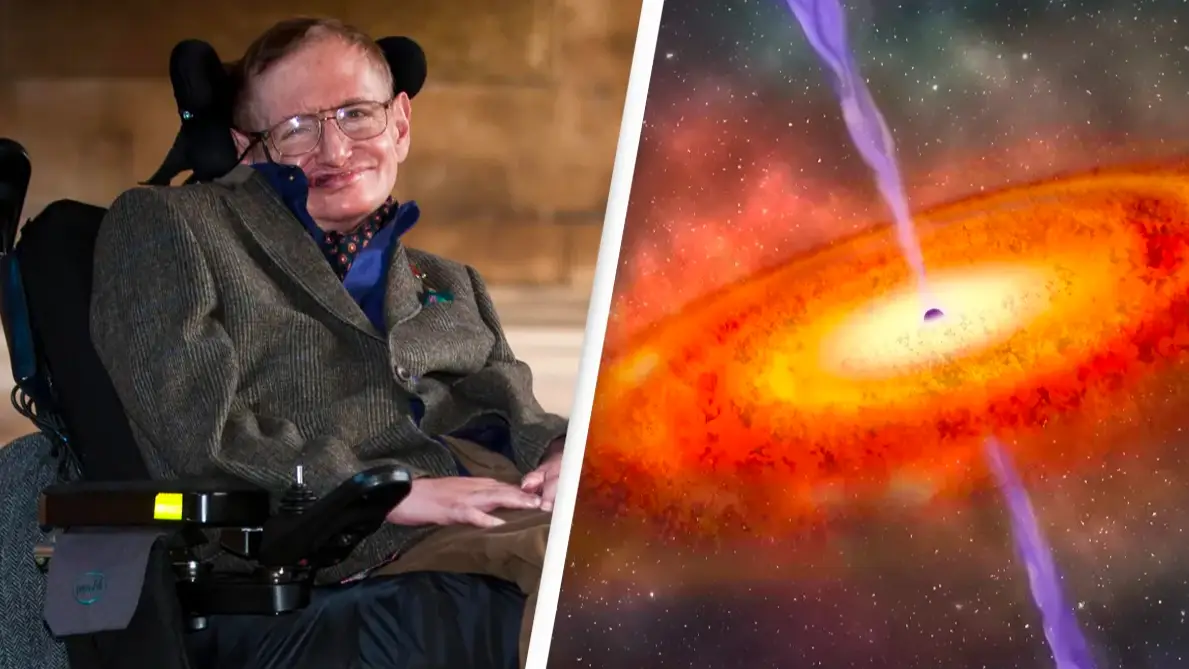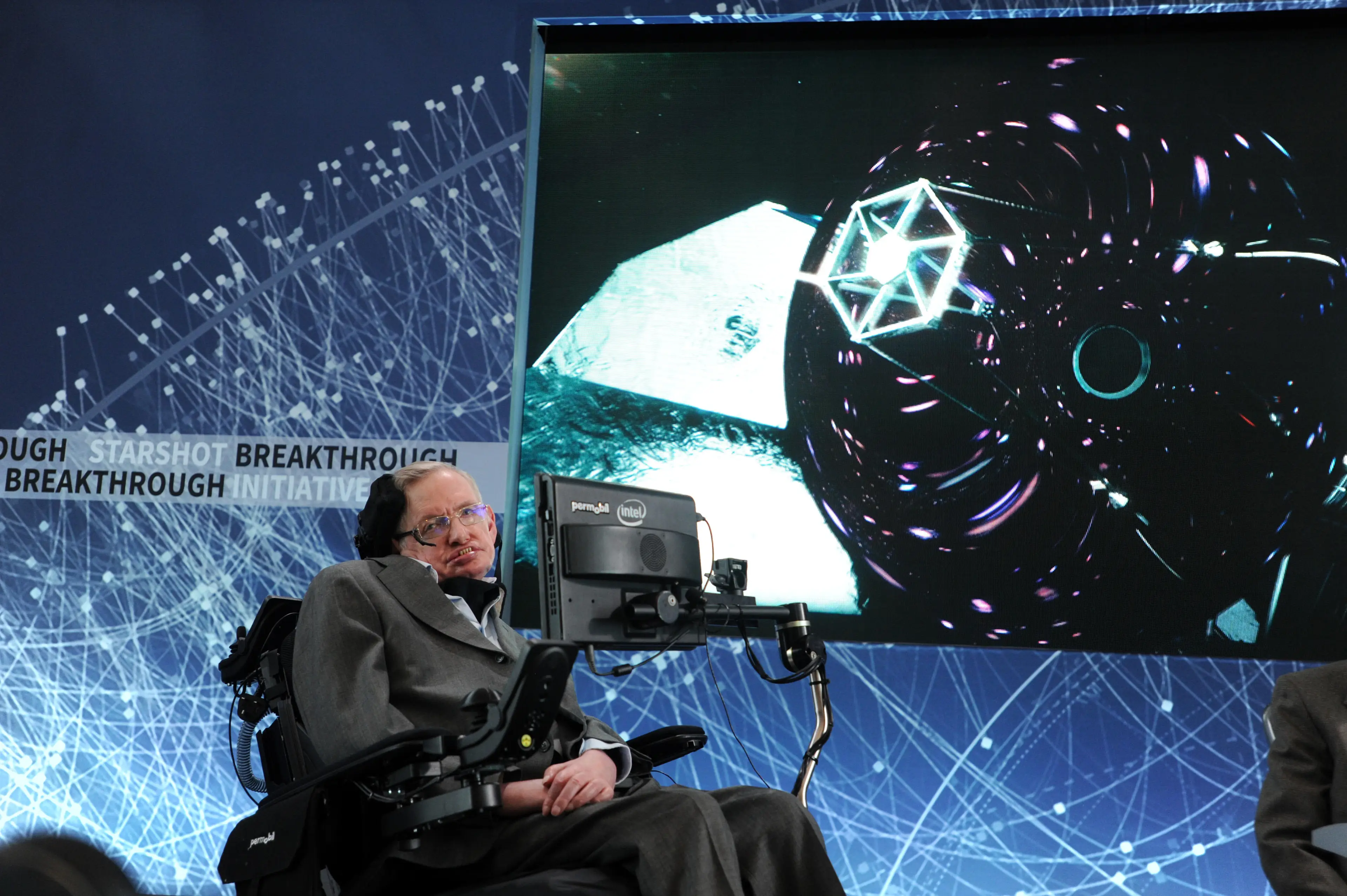
The 'Hawking radiation' emitted by black holes may be able to carry crucial information, a new study suggests.
Scientists may have just found the solution to one of astrophysics most mind-boggling mysteries concerning black holes, also known as the 'Hawking information paradox'.
A study published in the journal Physics Letters B last month offers a resolution to a problem the late physicist Stephen Hawking was working on in his final years.
Hawking's research showed that black holes emit radiation — colloquially known as 'quantum hair' — in the form of thermal energy. Due to its thermal nature, this radiation isn't able to carry information about the stars that birthed the black holes.
Advert
This means that the leaking of this radiation would ultimately cause the black hole to completely evaporate, leaving a vacuum behind and causing a loss of information - this has come to be known as 'Hawking radiation'.

These findings, however, are in contrast with the laws of quantum mechanics, stating that information cannot be destroyed and that an object’s final state can still retain clues about its origin, hence generating the paradox.
Research from study authors Xavier Calmet, a professor of physics at the University of Sussex, and Steve Hsu, a professor of theoretical physics at Michigan State University, introduces a tweak to Hawking's calculations which would make the radiation 'non-thermal,' and thus capable of carrying information.
"[This research] is the final nail in the coffin for the paradox because we now understand the exact physical phenomenon by which information escapes a decaying black hole," Calmet told Live Science.
He also noted how, according to the laws of quantum physics, information cannot be created nor destroyed, comparing the life of a black hole to a movie that 'could be rewound'.
"Starting from the radiation we should be able to rebuild the original black hole and then eventually the star," he continued.
Calmet and Hsu reassessed Hawking's theory factoring in the effects of 'quantum gravity,' that is the description of gravity according to the principles of quantum mechanics.
"While these quantum gravitational corrections are minuscule, they are crucial for black hole evaporation," Calmet explained.
!["[This research] is the final nail in the coffin for the paradox because we now understand the exact physical phenomenon by which information escapes a decaying black hole."](https://resizer.ladbiblegroup.com/unsafe/rs:fit:3840:0:0:0/g:sm/q:70/aHR0cHM6Ly9ldS1pbWFnZXMuY29udGVudHN0YWNrLmNvbS92My9hc3NldHMvYmx0OTQ5ZWE4ZTE2ZTQ2MzA0OS9ibHQwYjNmZWFhNDMxNzFjYzE5LzY0Mjk5ODNkOThiOTAwNzkwM2JjN2Y1My93b3JtaG9sZS1nMjQ5MmFkZGYxXzE5MjAuanBn.webp)
"We were able to show that these effects modify Hawking radiation in such a way that this radiation becomes non-thermal. In other words, factoring in quantum gravity the radiation can contain information."
Despite Calmet and Hsu having identified the exact physical phenomenon by which information escapes the black hole via Hawking radiation, it is currently impossible to retrieve it as there isn't an instrument sensitive enough to measure Hawking radiation, which is a purely theoretical concept.
Calmet acknowledged that, at present, there is no way for astrophysicists to measure the effect the researchers suggest as it is minuscule.
According to the scientist, studying simulations of black holes in labs on Earth incorporating their mathematical modeling of Hawking radiation and black holes would be the way forward.
